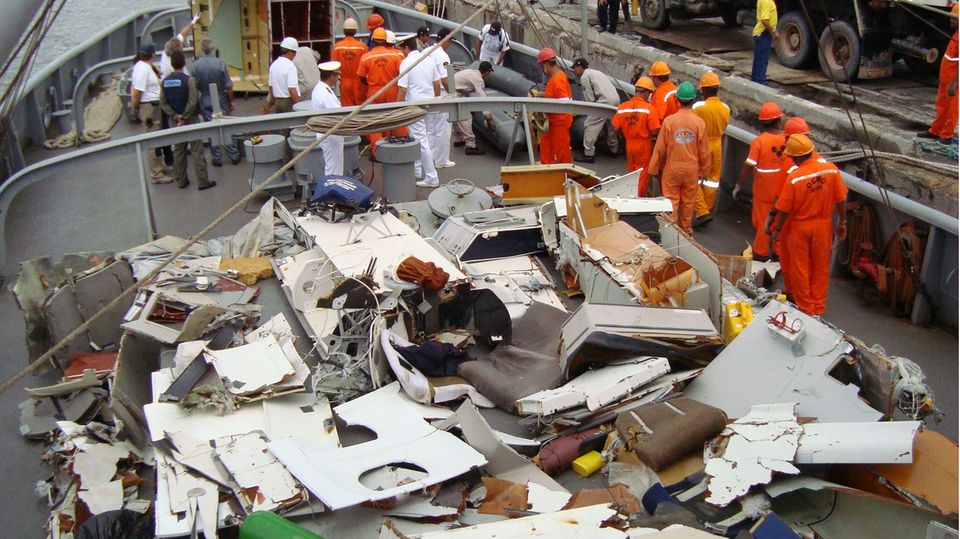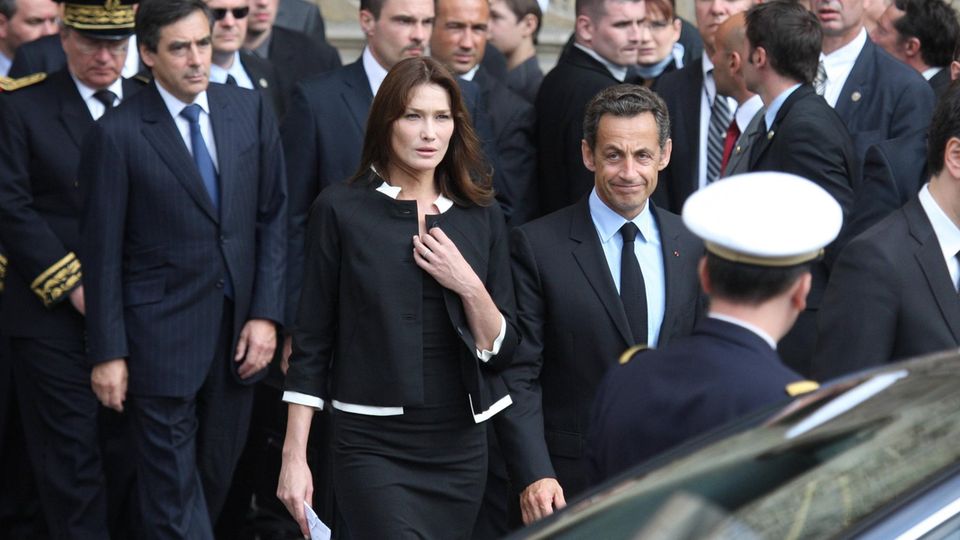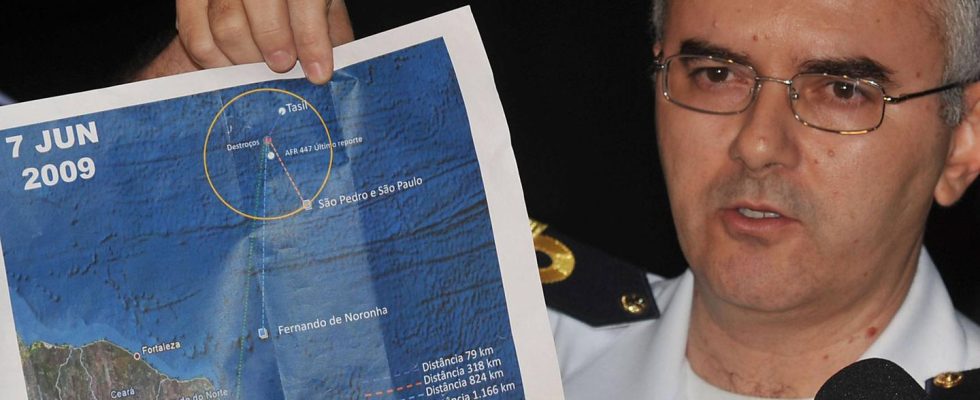June 1, 2009
“Damn, we’re going to hit” – the Air France Flight 447 disaster
Naval officer Gilcemar Tabosa of Brazil with a map of where the Air France plane crashed into the Atlantic that night
© Xinhua / Imago Images
In the early morning of June 1, 2009, an Air France plane en route from Brazil to Paris crashed into the Atlantic. The weather is bad – but the accident could have been prevented.
It’s the screams of panic in the cockpit that the voice recorder records last. The testimony of these horrible moments on board will play a role years later in the process that will finally come to terms with one of the worst disasters in recent aviation history: the crash of Flight AF 447, an Air France plane en route from Rio de Janeiro to Paris. For the French airline, the 2009 disaster is the worst accident in the company’s history.
The captain of the Airbus A330-203 and his two co-pilots can be heard on the voice recorder. “Damn, we’re going to crash. Shit, that’s not true,” yelled co-pilot David Robert at 2:14 a.m. local time that night on June 1, 2009, 14 years ago today. The recording ends five seconds later.
Trial against Air France and Airbus exonerates both companies
The recording is so painful for the bereaved that the voice recorder is only played behind closed court doors in the process, according to reports on the trial. The trial is intended to clarify whether the airline Air France and the aircraft manufacturer Airbus are to blame for the disaster in which 228 people lost their lives.
They are not, as the criminal court in Paris ruled on April 17, 2023 – almost 14 years after the crash. The nine-week trial ends with both companies being acquitted: Neither Airbus nor the airline are partly to blame, according to the verdict. According to the conviction of the court, the technology of the machine was in order and the pilots were adequately trained.
The only reason was the misconduct of the three pilots. They were overwhelmed in the emergency: Ironically, the most experienced pilot in the cockpit had gone to sleep shortly before the accident was imminent. The other two would have reacted incorrectly. Another procedure had already been discontinued in 2019.

In June 2009, tails from the crashed plane were recovered from the Atlantic
In retrospect, the crash of Air France Flight 447 appears as a chain of wrong decisions after the plane took off from the Brazilian metropolis at 7:03 p.m. on the evening of May 31. The flight path passes through a zone of severe thunderstorms – not uncommon in the area around the equator and in itself a manageable situation. If the storms had been avoided, the plane would probably have touched down at Paris Charles-de-Gaulle Airport the next morning, years later in the assessment of the events of each night. But the route would have been longer with a possible stopover.
Well after midnight, at around 2.10 a.m., the atmosphere in the cockpit suddenly turned to panic. Shortly before a storm zone, the speed sensors on the machine are iced up. You are sending conflicting data, which eventually causes the autopilot to disengage. The on-board computer indicates that the plane is descending – incorrect information. In response, the co-pilot steers the plane steeply up. Wrong decision in this situation. It eventually leads to a stall. The machine falls like a stone into the Atlantic.

On June 3, 2009, then French President Nicolas Sarkozy and his wife Carla Bruni-Sarkozy attend a memorial service for the victims of the plane crash
© IP3press / Imago Images
All of this happens extremely quickly – probably so quickly that the passengers didn’t notice anything. Many were not wearing seat belts at the time of the crash, the inquest later found. It only took about four minutes from the moment the pilots noticed that the speed measurement had failed until the impact.
At the time of the accident, it was already known that the speed sensors were susceptible to icing. The pilots were therefore also trained on how to behave if the speed measurement failed.
One consequence of the accident was that these pitot probes on the aircraft were replaced by other devices. Air France had even started replacing the probes in the fleet before the crash – but not on the crashed plane.
Long and laborious search for the wreck
The fact that the crash could be investigated so meticulously is thanks to the tireless search for the wreckage of the plane, which according to press reports cost around 35 million euros. About two years after the crash, the wreck of the Airbus machine was found at a depth of almost 4000 meters in the Atlantic – and with it the two flight recorders.
It is painful for many of the bereaved to this day that many dead were left behind on the seabed. “We could only rescue the passengers who were still buckled in their seats,” said retired gendarmerie colonel Xavier Mulot at the trial. “We had to leave the others on the seabed.”
28 Germans also died in the crash. Their relatives, those of the 72 French people who died, the 59 Brazilians, the families of flight captain Marc Dubois, the two co-pilots David Robert and Pierre-Cedric Bonin, the crew and all the other passengers killed have come to an end with the end of the process. For many families, however, 14 years after the Air France Flight 447 disaster, all that remains is “despair and anger,” as a relative said after the acquittal in April. To this day, some relatives have the feeling that it wasn’t just the pilots who were responsible for the catastrophe.
Sources: “Frankfurter Rundschau“, “The mirror“, “The time“, “The standard“, Victims’ Association of the Bereaved


